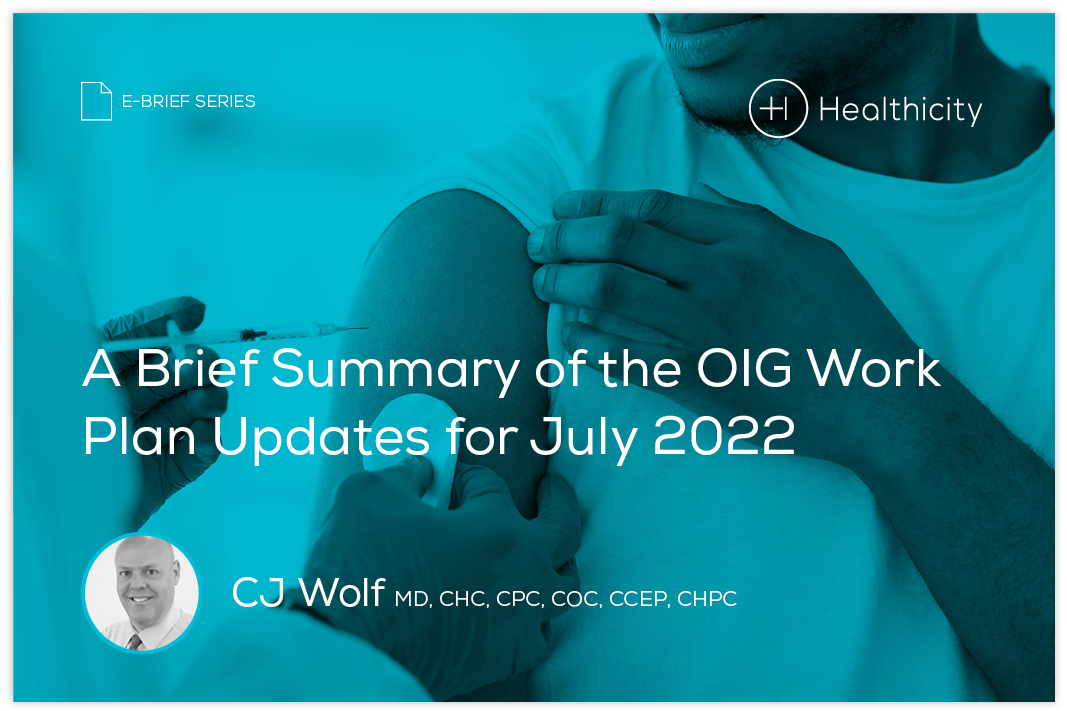A Brief Summary of the OIG Work Plan Updates for July 2022
Urinary Catheters, Opioid Use Annual Review, and Vaccine Confidence Strategy

The new OIG Work Plan items are important for all compliance professionals. If your organization performs activities related to these OIG focus areas, you probably want to perform some proactive auditing and monitoring of your own. Stat.
Let’s dive in.
Did you know that some folks have a condition called urinary retention? Well, the most common management for this condition is known as intermittent catheterization. Medicare paid more than $308 million for intermittent urinary catheters. The OIG plans to audit Medicare payments for intermittent urinary catheters to determine whether claims submitted by DMEPOS suppliers complied with payment requirements.
Before the COVID-19 pandemic, the country was dealing with an opioid crisis. Thousands were dying of overdoses each year, and the COVID-19 pandemic didn’t make the opioid crisis disappear. Instead, it complicated it. One way to deal with the crisis is to identify patients who might be at risk of overdosing. The OIG plans to create another report or data brief to provide information on opioid use among those enrolled in Medicare Part D in 2021. One of the OIG’s goals is to offer data from 2021 about the number of beneficiaries who received extreme amounts of opioids through Part D and those who appeared to be doctor shopping. The data brief will not stop there as it will also try to identify clinicians who might be prescribing outliers.
Download our latest eBrief, “A Brief Summary of the OIG Work Plan Updates for July 2022,” for the full scoop on the OIG’s latest goals. It includes everything you need to know about:
- Urinary catheters
- Principles of KISS
- Ways to assess compliance challenges through simplified steps